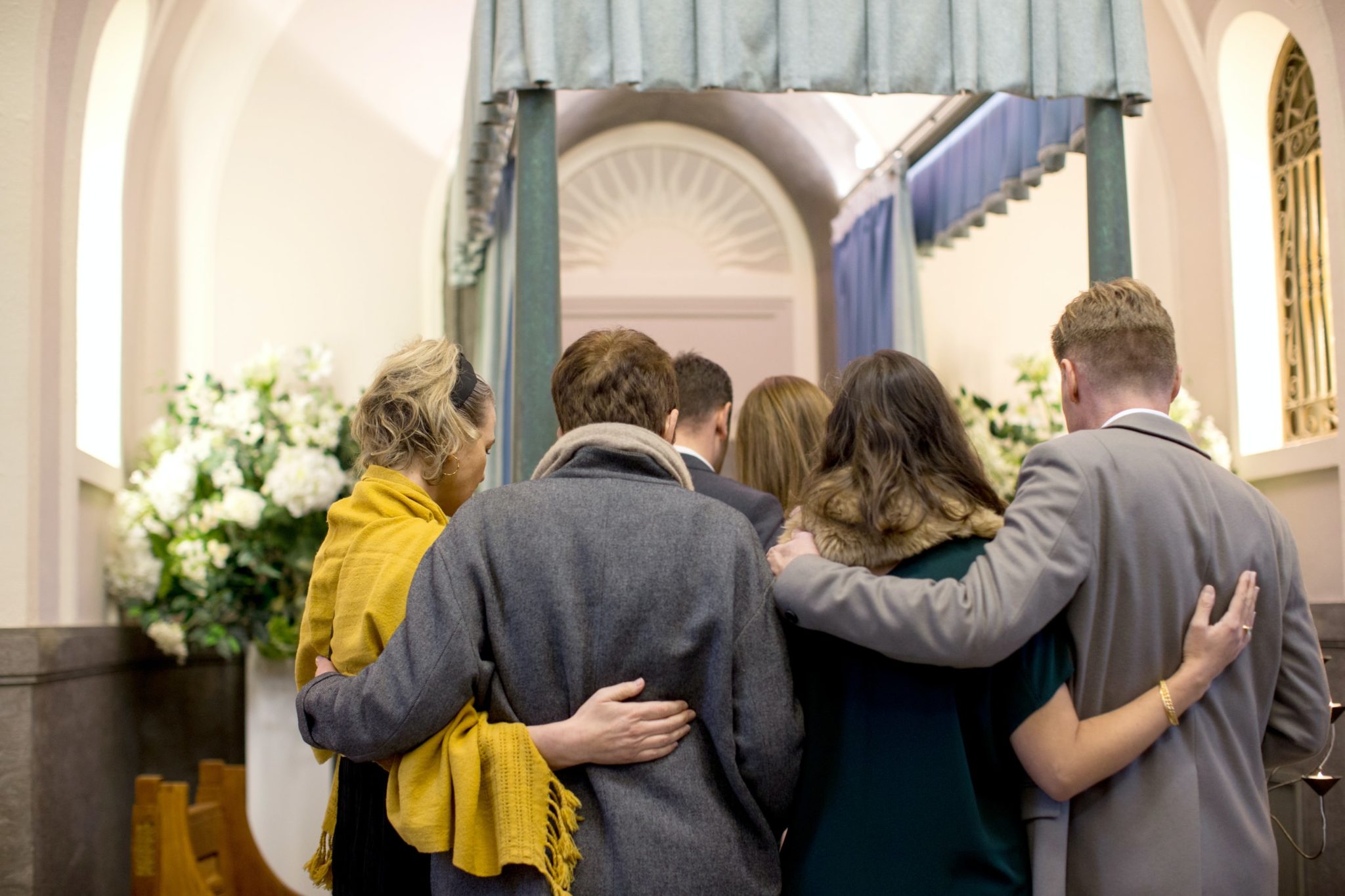
If you have ever asked Why do we say passed away or passed instead of someone died?, then you’re not alone. The language we use around grief is complicated and nuanced, and influenced by more than just our emotions at a particularly difficult time.
In fact, there’s more than one language for death. There’s the language clinicians and medical professionals use, which can seem somewhat cold to lay people who don’t work in that type of setting. There’s also the language family and loved ones use, which is often influenced more by emotion than by facts. And then there is non-verbal expression of grief, which is a language all its own.
Why Do We Say Passed Away?
It’s more likely that you’ll hear someone use the phrase passed away when they are interacting with a loved one, when they know the family personally, and when they are especially aware of the feelings and emotions of the person to whom they are speaking.
For example, we use that language here. We might tell you that we understand how difficult it is to acknowledge and deal with your loved one’s passing. We use those words because it shows who we are: people who understand the emotional toll the death of a loved one takes on those who survive.
We also understand that language plays an important part in working through feelings and understanding the event that has occurred. The event, the death of a beloved or friend, is often traumatic. It’s almost always seen as a negative event, even if your loved one or friend was ill. We understand this: no matter the circumstance, the death of your loved one leaves an absence in your world that might be impossible to fill.
We understand this because our primary focus is on helping you navigate this event the best way possible. This means that we are thinking of your feelings and emotions. This is a different focus from, for example, a clinician who is determining how and why a person has died.
In the latter example, that clinician uses words that seem and sound harsh and impersonal. They do this because it is their job: their focus is on documenting an event in clear, concise language—and the introduction of emotions, or of emotionally aware language, can interfere with that focus.
 Why Do We Say Passed Away When Someone Has Died?
Why Do We Say Passed Away When Someone Has Died?
Part of the grief process is working through our emotions to understand the event. In the case of the loss of a loved one, we often do this through storytelling. We tell the story of our loved one’s life to other family members and friends, to their past colleagues, to service providers who are helping with services. We do this because it helps us come to terms with this very real event that seems, in so many ways, very un-real. Think of organizations that have been established with the name of someone who has passed, like the Komen Foundation: this organization formed because a grieving family used Susan’s narrative to ensure her name lives on through her foundation.
That’s certainly not the only way to express grief. It can be expressed through rituals, such as visiting a favorite place to think about your loved one, or by writing about them, or by doing good deeds in their honor.
The point is, the language we use helps us move through the grief in ways that feel as comforting as possible. That’s why so many people use the phrase he passed away instead of he dies. Using the phrase she passed away is still an accurate phrase, but it honors the emotional battlefield of living through the death of a loved one. The National Library of Medicine has published a thorough and fascinating study that describes the languages of grief and how to understand the myriad ways people express grief.
When Should We Say Passed Away Instead of Died
There are other reasons we use a gentler phrase when addressing the event of death. It might be that we hope to protect the person we’re talking to. Or it could be an effort to avoid discomfort, as so many people are uncomfortable discussing anything related to death or dying. It could even be an effort to provide spiritual comfort, rather than a mere statement of fact.
There are appropriate times to use the more gentle language of passed away: when you are focused on offering comfort, for example. It might also be appropriate to use this language when you are discussing making plans for the future. For example, you might broach the subject of creating a plan for when your aging parent passes away. Using gentler language in that type of situation can help open the door to conversation, especially when you’re talking before the need for those plans is imminent.
But there are also times to be direct, to use the language that seems harsher though factually accurate. Certainly when a doctor or other medical professional is describing a loved one’s health, it’s important to be clear and as precise as possible. In cases where important medical decisions have to be made, the clarity of harsher words, like death and dying, can help family and loved ones understand the current circumstances as clearly as possible, which is an integral part of end of life decision making.
We Are Here for You
Our focus is solely on you, the person who is grieving a loved one and trying to navigate the logistics of honoring and remembering them after they’ve passed. This means that the language we use honors you both while being gentle but honest. We answer questions directly and with great care, while remembering how difficult this all is. And we’re always here to discuss options, answer questions, or help you with pre-planning goals if that suits you. Reach out anytime.



Recent Comments